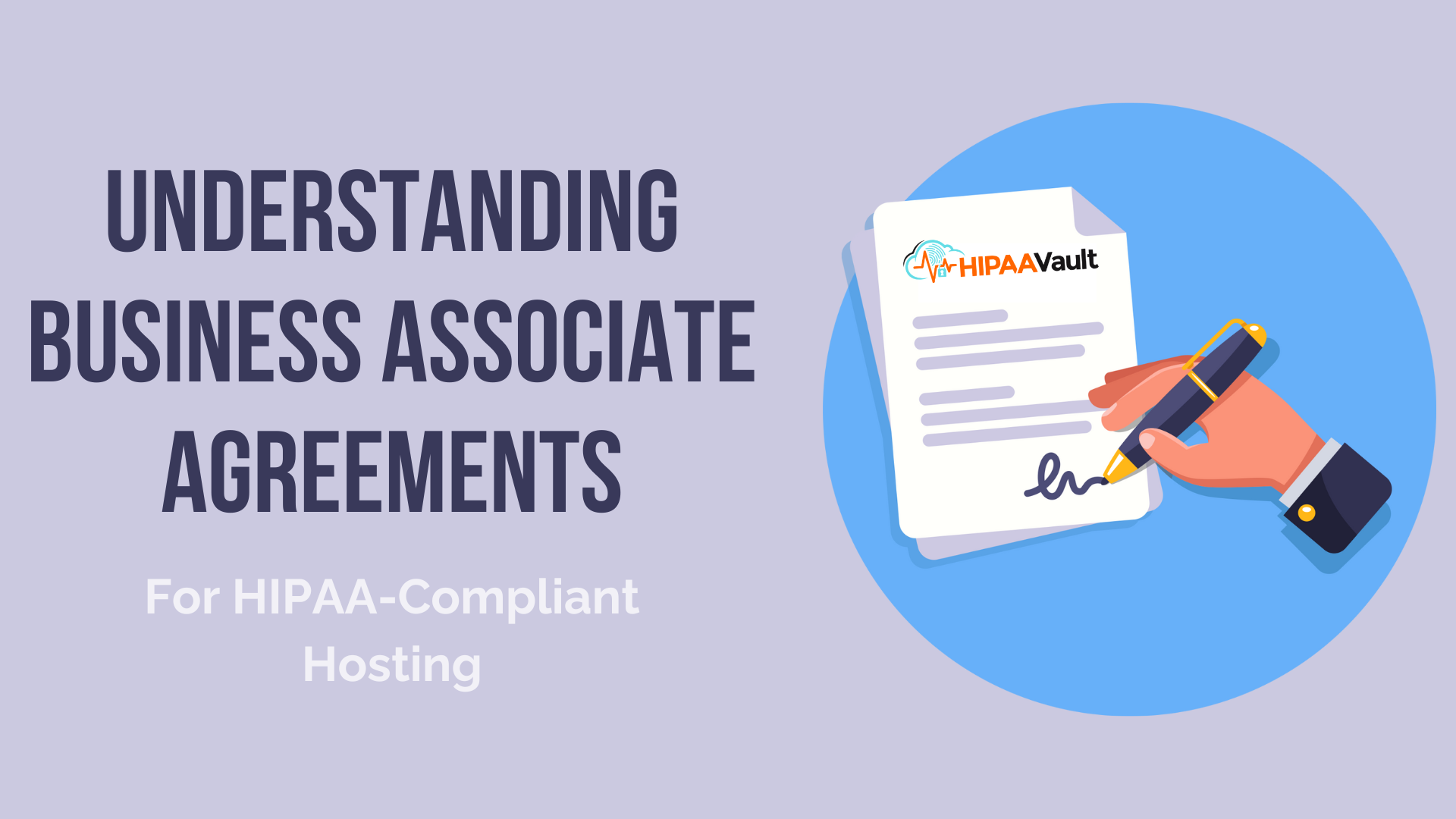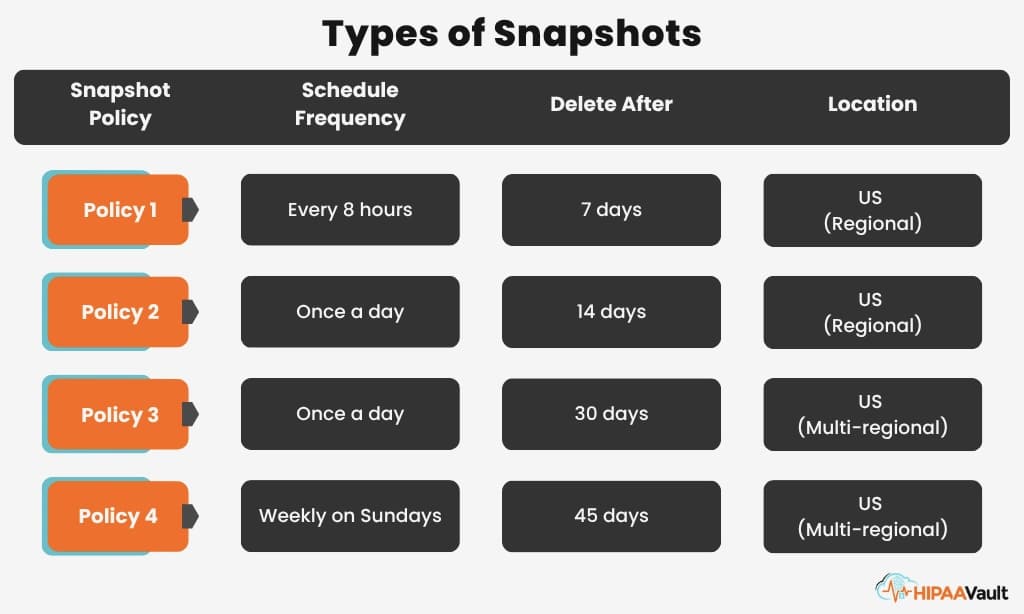The Importance of BAAs in Healthcare Data Security
In today’s digital healthcare landscape, protecting patient information is paramount. Business Associate Agreements (BAAs) play a crucial role in ensuring HIPAA compliance and maintaining healthcare data security. These legally binding contracts are essential for covered entities and their business associates to safeguard Protected Health Information (PHI).
Recent data underscores the critical nature of BAAs. In 2022, 51% of healthcare organizations reported experiencing a breach involving business associates, highlighting the importance of robust BAAs. Moreover, the U.S. Department of Health and Human Services (HHS) reported that 66% of HIPAA violations in 2022 were due to hacking or IT incidents, emphasizing the need for strong cybersecurity measures.
This comprehensive guide will explore the intricacies of BAAs, their components, and best practices for HIPAA-compliant hosting to help you navigate the complex world of healthcare privacy regulations.
Defining Key Players in HIPAA Compliance
Who is a Covered Entity?
Covered entities are the primary organizations responsible for complying with HIPAA regulations. These include:
- Healthcare providers (e.g., doctors, clinics, hospitals)
- Health plans (e.g., insurance companies, HMOs)
- Healthcare clearinghouses
These entities directly handle PHI and must ensure its protection throughout their operations.
What is a Business Associate?
A business associate is a person or organization, other than an employee of a covered entity, who performs certain functions or activities that involve the use or disclosure of PHI on behalf of, or provides services to, a covered entity. Examples include:
- IT service providers
- Cloud storage companies
- Billing and coding services
- Legal firms handling healthcare-related cases
It’s important to note that a business associate can also be a subcontractor that creates, receives, maintains, or transmits PHI on behalf of another business associate.
Essential Components of a Business Associate Agreement
Glossary of HIPAA Terms
A well-crafted BAA begins with a clear definition of key terms to ensure all parties understand the terminology. Essential terms to include are:
- Data Aggregation
- Designated Record Set
- Electronic Health Record
- Health Care Operations
- HITECH Act
- Privacy Rule
- Protected Health Information (PHI)
- Required By Law
- Secretary
- Security Rule
- Subcontractor
- Unsecured Protected Health Information
Obligations and Responsibilities
The BAA must clearly outline the obligations and responsibilities of both the covered entity and the business associate. Key points to address include:
- Use and disclosure of PHI
- Safeguards to protect PHI
- Reporting of unauthorized uses or disclosures
- Agreements with subcontractors
- Access to PHI by individuals
- Amendment of PHI
- Accounting of disclosures
- Compliance with the HITECH Act
Data Breach Prevention and Notification
Given the high incidence of data breaches in healthcare, this section is crucial. It should detail:
- Preventive measures to be implemented
- Breach detection protocols
- Notification procedures in case of a breach
- Timelines for reporting breaches
- Mitigation strategies
Protecting Electronic Health Records: Best Practices
Encryption and Access Control
Implementing robust encryption and access control measures is essential for protecting electronic health records. Best practices include:
- End-to-end encryption for data in transit and at rest
- Multi-factor authentication for user access
- Role-based access control
- Regular security audits and assessments
HIPAA-Compliant Hosting Solutions
Choosing a HIPAA-compliant hosting provider is crucial for maintaining the security and integrity of electronic health records. Key features to look for include:
- Physical and virtual security measures
- Regular backups and disaster recovery plans
- Compliance certifications (e.g., HITRUST, SOC 2)
- Dedicated HIPAA compliance team
Navigating HIPAA and HITECH Act Requirements
Privacy Rule Compliance
The HIPAA Privacy Rule establishes national standards for the protection of individuals’ medical records and other personal health information. Key aspects include:
- Limits on uses and disclosures of PHI
- Patient rights to access and amend their health information
- Administrative requirements for covered entities
Security Rule Implementation
The HIPAA Security Rule complements the Privacy Rule by setting national standards for securing electronic PHI. It requires appropriate administrative, physical, and technical safeguards to ensure the confidentiality, integrity, and security of electronic PHI.
BAA Duration and Legal Considerations
Defining Agreement Terms
A BAA should clearly specify its duration, including:
- Start date
- End date or conditions for termination
- Procedures for amendments or modifications
Jurisdiction and Dispute Resolution
This section should address:
- Governing law
- Venue for dispute resolution
- Arbitration or mediation procedures
Ensuring Healthcare Privacy and Data Security
Business Associate Agreements are indispensable tools for maintaining HIPAA compliance and protecting sensitive healthcare data. By understanding the key components of BAAs, implementing best practices for electronic health record protection, and staying informed about HIPAA and HITECH Act requirements, healthcare organizations and their business associates can create a robust framework for data security.
As the healthcare industry continues to evolve and face new cybersecurity challenges, the importance of well-crafted BAAs and HIPAA-compliant hosting solutions cannot be overstated. By prioritizing these aspects, healthcare providers and their business associates can focus on their primary mission – providing quality patient care – while ensuring the privacy and security of sensitive health information.
Remember, HIPAA compliance is an ongoing process that requires vigilance, regular updates, and a commitment to best practices in healthcare data security. By staying informed about the latest developments in HIPAA regulations and cybersecurity trends, you can ensure that your organization remains compliant and secure in an ever-changing digital landscape.








